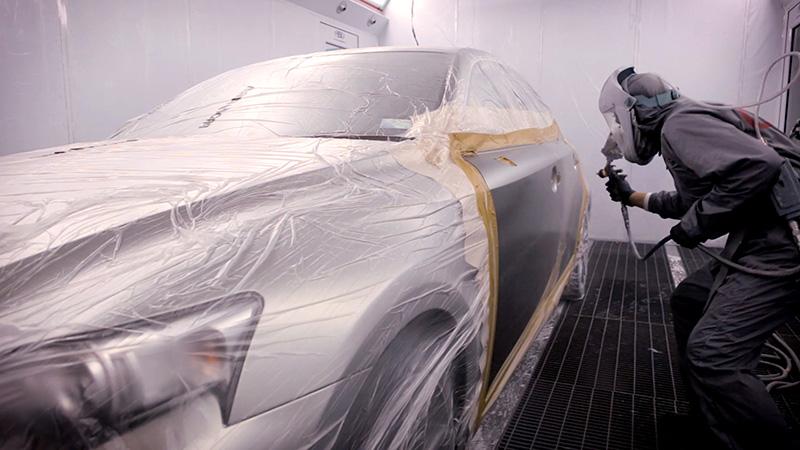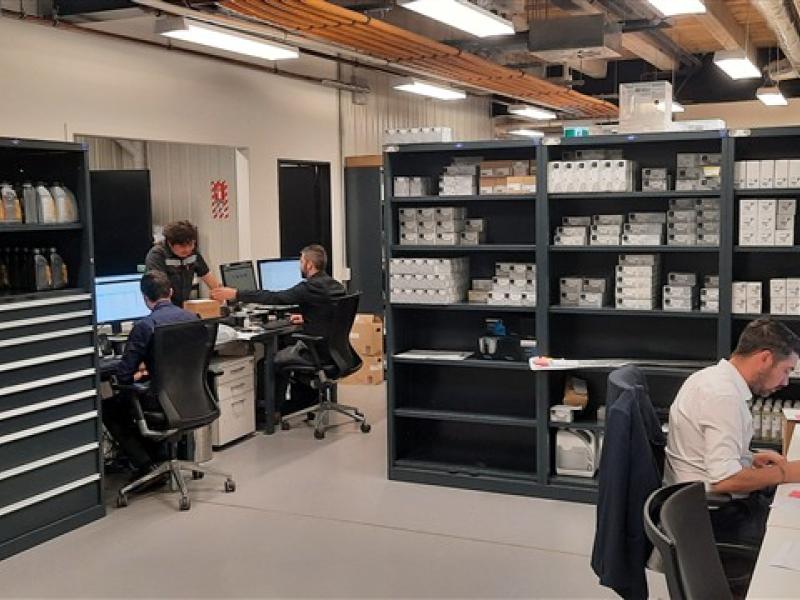New Zealand’s billion-dollar collision repair industry is set to lose up to 15 percent of its revenue to Insurance Industry owned facilities over the next year according to the Collision Repair Association (CRA).
The projected loss of revenue comes at a time when the industry is facing a “perfect financial storm” of economic and environmental factors which will adversely affect its long term viability - including the pandemic, skills shortages and inflation.
New industry figures show demand for parts and repairs are down 31 percent on pre-Covid levels - as significantly fewer Kiwis travel in vehicles. Rising petrol prices are also contributing to an up to 20 percent drop in traffic volumes in the major city centres.
Panel repair industry research shows that cost pressures on repairers are growing rapidly; wages in the industry have increased by over 10 percent over the past year with other inputs including paint, consumables and services also up by as much as 15 percent over the same period.
Australian owned IAG insurers (AMI, State, NZI and Lumley), which collectively have over 60 percent share of the local market, are vertically integrating, opening high-volume panel repair shops in Auckland, Wellington, Hamilton and Christchurch.
The CRA claims that each of the facilities, which will operate under the ‘Repairhub’ brand, are capable of processing up to 5,000 jobs annually – four times the amount of work an average panel repairer can process.
Neil Pritchard, general manager of the Collision Repair Association (CRA), says the insurers are now able to channel the more profitable, cosmetic repair work through their claims process directly into their own repair network.
He says prior to 2019, almost all 500 collision repair shops in NZ were locally owned and the additional competition faced by the new insurer model could not have come at a worse time for the industry.
“Since its inception the local collision repair industry has been made up of hundreds of New Zealand owned panel repair shops.
“With prices dictated by insurers, the industry does not operate under the same competitive forces that most other service providers do.
“The absence of these forces creates a high level of vulnerability to external cost changes for businesses and when this is coupled with the introduction of an insurer network which can capture high volumes of work from the most lucrative jobs, it places our ability to develop infrastructure for more complex, structural repairs in jeopardy.
“What we are seeing at the moment is the culmination of several economic factors which are threatening the long term viability of the industry.
“Reduced consumer access to repair facilities that are capable of carrying out structural repairs could see more cars being written off unnecessarily, and higher insurance costs for motorists,” he says.
IAG’s response
Motor Equipment News visited and wrote about the original East Tamaki Repairhub in our April 2020 issue, We reached out to IAG for their comments.
IAG has been open and transparent about our Repairhub facilities. This includes confirming that our approved repairer network will remain a critical part of our national operation.
We have strong quality control standards and quality is checked at every stage of the repair. We know that Repairhub quality is as good as you can find in the market, given we have the latest equipment, high quality parts and paint, excellent training and processes.
The customer is our first priority – the customer can choose which repairer they go to whether that’s a member of our approved repairer network, Repairhub or another repairer of their choice.
IAG takes its responsibilities seriously as an industry leader. We are using the insights we gather at Repairhub to continuously improve the service as we move forward.
Our goal is for Repairhub to operate alongside repairers. Together, we can continue to deliver a great customer experience.
We continue to have a very strong relationship with the industry and industry bodies, and we look forward to a continuation of that.
Further background
Insurer-owned motor vehicle repair facilities using the “rapid repair” model have been a fact of life in New Zealand since the Capital S.M.A.R.T network was first introduced by Suncorp (Vero and AA) several years ago.
In 2019, IAG decided to trial its own version of the “rapid repair” model known as Repairhub and a test and learn facility was opened in East Tamaki.
Repairhub focusses on one section of the overall repair business - rapid motor vehicle repairs that are non-structural.
With the success of the test and learn facility, IAG decided to establish Repairhubs in the four main metropolitan areas - Auckland, Hamilton, Wellington, and Christchurch.
There are no plans to open Repairhub facilities in other parts of New Zealand.
Repairhub is the result of extensive research and feedback from customers who said they wanted high-quality repairs, better communication, and an improved customer experience.
The Repairhub team will continue to learn as the Repairhub model evolves, so it can provide the best possible service to its customers.
In terms of customer feedback, the latest customer satisfaction ratings give Repairhub an NPS of 89 (out of 100).
Other metrics include an average repair time of 2.6 days, with over 11,000 repairs completed to date. We have a key-to-key time of 3.6 days and no wait time for a loan car.
IAG has considered customer feedback, along with the growing international trend of specialised, process-driven vehicle repair methods.
Globally, IAG has observed how facilities adopting these methods are getting customers back on the road faster.
In developing Repairhub, IAG considered the global trends but designed the concept to suit the unique needs of the New Zealand market.
The Repairhub team are specialists in motor vehicle repairs. They have access to enhanced international technologies, improved systems, high-quality equipment and parts to ensure that the expectations of our customers are met. The same standards apply at Repairhub as they do across our approved repairer network.






